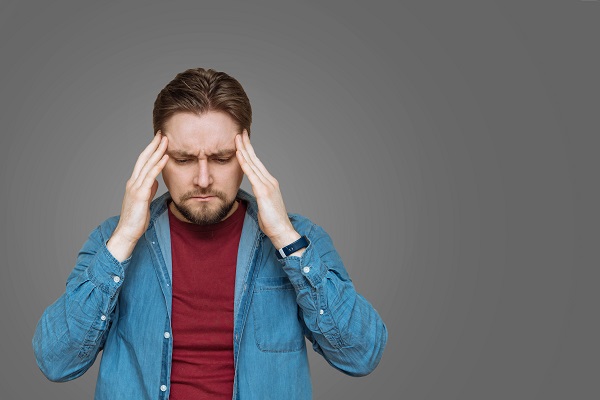Learn About ADHD Treatment Options From a Psychiatrist

ADHD, which stands for attention deficit hyperactive disorder, is a common condition in children as well as adults. If this condition is left untreated, there can be a significant decrease in the quality of life for the sufferer as well as those around them. People with ADHD tend to have issues with impulsivity and their ability to sit still or pay attention. Fortunately, the brain is highly adaptable, and it is possible to use therapy and medication to teach a child how to gain control over their feelings and behavior.
A psychiatrist explains common ADHD treatment options
There are other treatment options that a patient can use to improve their lives and bring out the best of their own capabilities. To learn more about them, scheduling an appointment with a psychiatrist experienced in ADHD treatment is advised. In the meantime, here are a few things to consider besides medication:
Behavior therapy
By bringing up behaviors and helping a person realize that they are doing them, this therapy offers a way to recognize and then change negative patterns. The person will learn how they respond to certain stimuli and situations and change the reaction to something positive.
This is especially beneficial for children who find it difficult to control their reactions, often responding to a situation in a negative or highly emotional way. By learning to incorporate control techniques like deep breathing, counting, or repeating calming phrases, children can learn to bring themselves back down.
Support groups
Support groups are ideal for those who want to meet others who are also diagnosed with ADHD. This helps them find friends and speak about the many ways that they can change patterns and behaviors. It helps the person know that they are not alone in this and that things can get better. Talking about the symptoms and patterns can make a person more aware of them, while the feedback from others is positive in a healing sense.
Social skills training
This training is ideal for young children who need ADHD treatment. This positive method works to provide social skills to young children who may have a hard time sharing, dealing with social situations, controlling their movements, or talking to others. All these issues can be addressed in a positive environment using social skills training.
Diet
At times, dietary changes can also make a positive impact on how a person feels or make it easier to manage ADHD symptoms. Mental health professionals will often ask patients questions about their daily routine, diet and even sleep patterns to identify simple changes they can make. For example, they may recommend that a child begin:
- Taking a fish oil supplement or eating salmon regularly
- Taking iron and zinc supplements
- Getting tested for food allergies to eliminate any allergens
- Reducing the amount of sugar or processed foods that are consumed
Frequently asked questions about ADHD
Dealing with ADHD? Here are answers to some of the questions you might have:
1. How common is the disorder?
The National Institute of Mental Health states that about 5% of school-age and preschool children have ADHD. The disorder typically starts in childhood and can last until adulthood when left untreated. Up to 65% of children with ADHD will carry it into adulthood.
2. What leads to ADHD?
The exact cause of ADHD is unclear, but it looks like a combination of genetic and environmental factors leads to the disorder. Some of the factors that make a child more prone to developing the disorder include physical differences in the brain, environmental toxins, prenatal risks, family history, and sex.
3. How do I know if my child has ADHD?
Some of the symptoms and signs of ADHD include:
- Trouble paying attention
- Getting distracted easily
- Losing things regularly
- Forgetting to turn in schoolwork
- Difficulty playing quietly
- Poor listening skills
- Inability to stay seated
- Fidgeting
- Excessive running and climbing
- Impatient
- Talking too much
4. What are the treatment options for ADHD?
The first step to treating ADHD is getting the child assessed by a psychiatrist. Once ADHD has been diagnosed, therapy and medication are typically recommended as a combined treatment. Medication does not cure ADHD, but it does help to reduce the child’s symptoms, making it easier for them to perform day-to-day activities.
Ready to get a handle on ADHD?
When ADHD treatment is needed, it is important to conduct an evaluation before making a treatment recommendation. Therapy, medication, and other methods can be used to help change behaviors and manage this condition.
Get more information here: https://mb.futurepsychsolutions.com or call Future Psych Ketamine Clinics at (843) 788-9718
Check out what others are saying about our services on Yelp: ADHD Treatment in Myrtle Beach, SC.
Related Posts
Living with an anxiety disorder is challenging, especially when you do not have the tools to manage it. Anxiety, in these cases, is more than a passing feeling; it can be all-consuming and lead to isolation. The longer it is left untreated, the more severe the condition can become. If you are looking for relief…
office today.Request an appointment or call Future Psych Ketamine Clinics at 843-788-9718 for an appointment in our Myrtle Beach office.
Panic attacks are common among people living with anxiety disorders. These attacks happen even though there is no real threat. They can be so overwhelming that some people go to the emergency room thinking they are having a heart attack. Panic attacks are not life-threatening, but knowing how to manage them can bring much-needed relief.…
Seeking treatment for an anxiety disorder is crucial in restoring and maintaining your mental health. Unfortunately, many will not seek help, leaving their personal and professional lives and health to suffer. This is why it is crucial to seek help, and seeking help becomes easier when you know where to look and what to expect.According…
